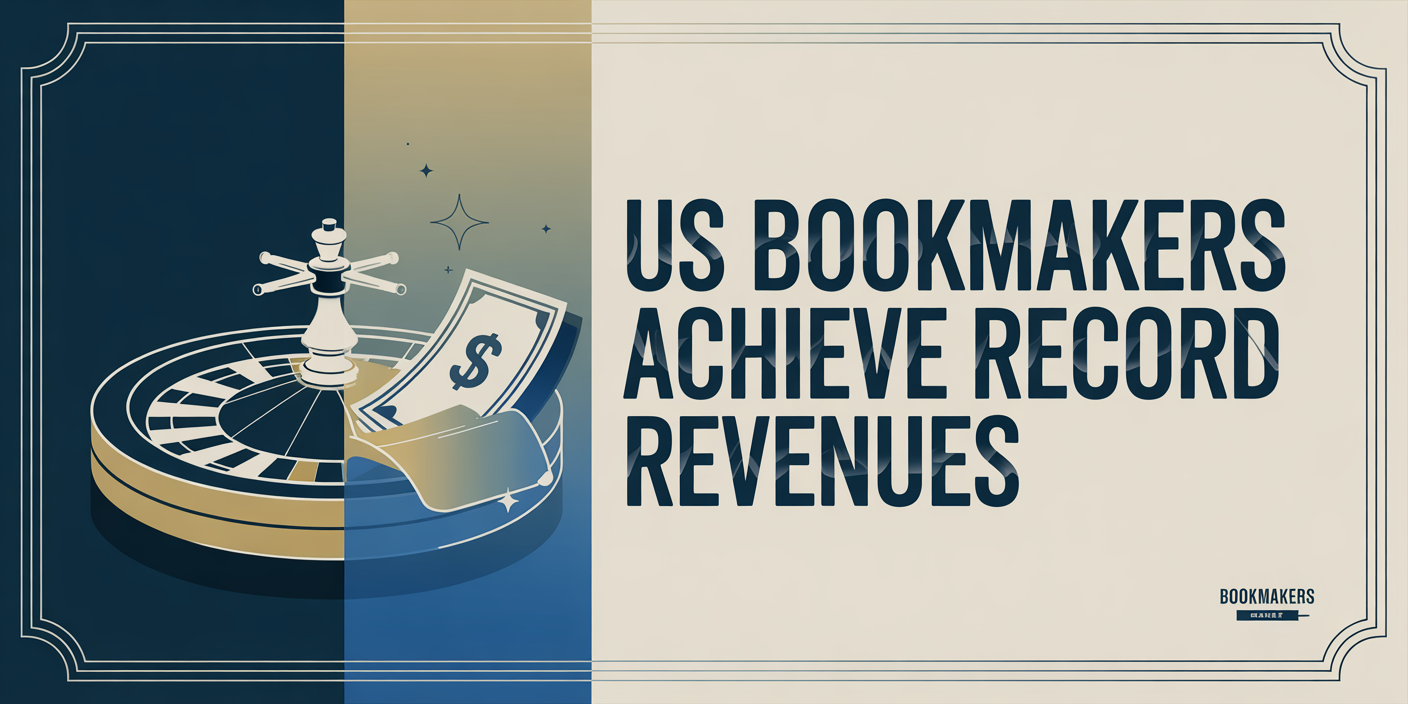US Bookmakers Achieve Record Revenues

Global technological advancement in software, deeper smartphone penetration, and gambling legislation liberalization have driven the fast-growing sports betting market to its record-breaking level. The international lottery and sports betting market rose to $268.6 billion, as per a marketplace trends analytics platform MarketResearch report. It is expected to reach $890.3 billion within ten years.
The United States is one of the largest market drivers of gaming globally. Bookmakers have seen revenue mad dashes since the Supreme Court permitted the upholding of the federal ban on gambling to remain in effect. Americans wagered legally $147.91 billion on sports, an increase of 23.6%, the American Gaming Association (AGA) documents. Revenue at gambling companies was up 25% to an all-time high of $13.71 billion, as SportsPro documents. This rapid growth includes rising enthusiasm for MLB betting lines, which has become an essential concern to bettors and fans.
Hotline Call Rise
Over the course of the year-end, sports betting was legalized in 38 United States states and the District of Columbia, among which 34 commercial jurisdictions upon which the figures are publicized. Sports betting began in North Carolina and Vermont, which together produced $605.6 million. To begin the following year, sports betting began in Missouri through a state referendum to legalize sports betting. New York produced the most gambling revenue among all the cities and states at $2.09 billion, followed by Illinois and New Jersey, both of which produced over $1 billion.
US legalisation of gambling has led to more irresponsible gambling, bankruptcy due to gambling, and more criminal activity, such as violence. "We have recently seen a disturbing increase in young male gamblers across the US presenting to treatment with severe gambling problems," Elliot Rapaport, the founder of Birches Health, said in an interview with Field Level Media. "They even find ways to circumvent it in non-legalized states on internet casinos and other off-regulated websites. This is quite disturbing."
Baseball Great Translator Lost $16 Million to Bookmakers
Statistics compiled by Springer Nature magazine indicate that 1% to 2% of American adults are seriously hooked on gambling — i.e., 2 to 4 million adults. But scarcely any of them seek treatment. As few as 10% of those with gambling problems receive treatment. Contrast this to the reality that people with substance abuse disorders get assisted between 10% to 50%, whereas people with depression and anxiety get around 70% to 90%.
Addiction to gambling is not only an issue for the average Joe — in recent years, a succession of high-profile scandals rocked the upper-echelon American professional sports leagues. The National Basketball Association (NBA) suspended Toronto Raptors center Jontay Porter for life after he had an active betting account and placed about 1,000 bets worth several million dollars. He also violated league regulations by sharing confidential information with other people who gambled on sports.
According to US Attorney Martin Estrada of the Central District of California, who prosecuted the case in court, Mizuhara imitated Ohtani while talking with bank employees, placed around 19,000 bets, and cashed his winning amounts into his personal account. Investigators found $4.5 million of gambling expenditure initially, but it's now known that Mizuhara lost a staggering $16 million to bookmakers. The Dodgers dismissed the interpreter, and Ohtani denied any involvement. Guilty, Mizuhara, 39, can face a maximum 30-year prison term.
Aggressive Advertising
The online betting industry in the USA currently lacks a unified federal regulation standard – each state implements its own rules and amendments regarding the online activities of bookmakers.
Out of the 25 U.S. states where online betting is allowed, twenty have no restrictions on using credit cards for bets. Three states do not have regulations requiring operators to provide players with tools to set their own deposit limits, betting amounts, or time spent on gambling. In four states, there is no statewide self-exclusion program for gambling, which would allow problem gamblers to restrict their ability to place bets with any bookmaker.
Meanwhile, government authorities are more concerned with the effectiveness of tax collection from bookmakers than with legislative issues and the potential harm to vulnerable groups of citizens.


